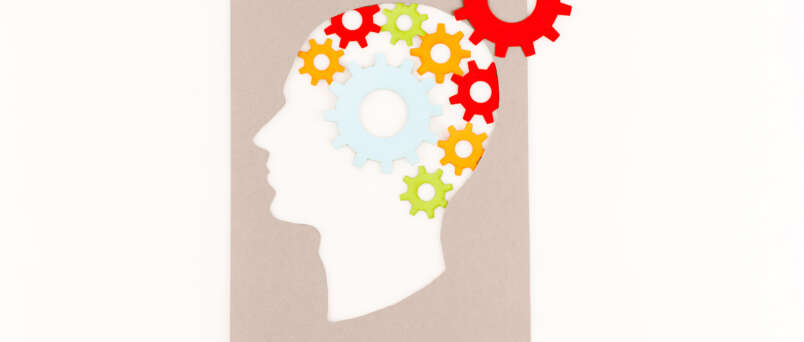Understanding the Mind of a Drug Addict: Contrasting Perspectives
ntroduction: Unveiling the Cognitive Contrasts
In delving into the intricate realms of addiction, we are confronted with a profound exploration of human cognition. The contrast between how a drug addict thinks compared to a non-addict unveils layers of complexity that redefine our understanding of mental processes. This article embarks on a journey to decipher these cognitive disparities, shedding light on the profound impact addiction exerts on perception, decision-making, and overall thought patterns.
The Influence of Chemical Dependency on Perception
Distorted Reality: The Lens of Addiction
For a drug addict, perception becomes a kaleidoscope of altered realities. The chemical dependency rewires neural pathways, distorting sensory inputs and skewing the interpretation of external stimuli. What may seem mundane to a non-addict takes on new dimensions of significance or insignificance, reflecting the altered state of consciousness perpetuated by addiction.
Heightened Sensory Responses: The Quest for Escapism
In contrast, non-addicts navigate the world with a relatively unaltered perception, responding to stimuli within the framework of natural neurological responses. Their sensory experiences, though nuanced, do not bear the weight of heightened sensitivity or numbed responses characteristic of drug-induced states.
Decision-Making Paradigms: Rationality vs. Impulse
Rational Assessments: Non-Addictive Thought Processes
Non-addicts typically engage in decision-making processes rooted in rationality, weighing pros and cons with a clarity unclouded by substance influence. Their choices often reflect a balance between immediate gratification and long-term consequences, guided by cognitive frameworks that prioritize stability and well-being.
Impulsive Responses: The Addiction Influence
In stark contrast, drug addicts grapple with the overpowering influence of addiction on decision-making. The impulse control mechanisms falter under the weight of chemical cravings, leading to choices driven by immediate rewards rather than long-term considerations. This shift in decision-making paradigms underscores the profound impact of addiction on cognitive functions.
Emotional Regulation: Turbulence vs. Stability
Emotional Turbulence: The Emotional Rollercoaster of Addiction
For a drug addict, emotional regulation becomes a turbulent journey marked by highs and lows dictated by substance use. The emotional instability stemming from chemical dependencies amplifies emotional responses, leading to erratic behavior patterns and fluctuating mood states that defy conventional emotional regulation norms.
Stability and Resilience: Non-Addictive Emotional Equilibrium
Conversely, non-addicts navigate emotional landscapes with a sense of stability and resilience, responding to stimuli with emotional intelligence and adaptive coping mechanisms. Their ability to regulate emotions reflects a cognitive equilibrium unaffected by the tumultuous sway of addiction-induced mood fluctuations.
Cognitive Flexibility: Adaptation vs. Rigidity
Adaptive Responses: Non-Addictive Cognitive Flexibility
Non-addicts exhibit cognitive flexibility, embracing adaptive responses to changing circumstances and stimuli. Their mental agility allows for nuanced perspectives, problem-solving prowess, and a capacity to navigate complex situations with clarity and adaptability.
Rigidity and Tunnel Vision: Addiction’s Impact on Cognitive Flexibility
In contrast, addiction often engenders cognitive rigidity and tunnel vision, constraining the ability to adapt to new information or alternative viewpoints. The fixation on substance-related pursuits eclipses cognitive flexibility, leading to narrow-mindedness and resistance to cognitive shifts.
Conclusion: Bridging the Cognitive Gulf
In conclusion, the cognitive disparities between how a drug addict thinks compared to a non-addict underscore the profound impact of addiction on neurological processes, perception, decision-making, emotional regulation, and cognitive flexibility. By unraveling these contrasts, we gain insights into the complex interplay between substance dependencies and cognitive functions, paving the way for targeted interventions, empathetic understanding, and holistic approaches to addiction recovery.
At More Life Recovery Center, our team is determined to help you maintain sobriety. With our professionals offering many treatment services, all of the resources you need are right here waiting for you. To learn more about outpatient treatment, visit our website https://moreliferecoverycenter.com or give our team a call today at 1 (888) 825-8689.
- Hazelden Betty Ford Foundation:
- Website: hazeldenbettyford.org
- The Hazelden Betty Ford Foundation offers a wide range of addiction treatment services and resources, including inpatient and outpatient programs.
- National Council on Alcoholism and Drug Dependence (NCADD):
- Website: ncadd.org
- NCADD is a nonprofit organization dedicated to raising awareness about alcoholism and drug dependence. They provide resources, information, and support.
- Addiction Center:
- Website: addictioncenter.com
- Addiction Center is an online resource that offers information about addiction, treatment options, and a directory of rehab centers across the United States.
- Substance Abuse and Mental Health Services Administration (SAMHSA):
- Website: samhsa.gov
- SAMHSA is a government agency that provides valuable resources, treatment locator tools, and information on mental health and substance use disorders.
- Dual Diagnosis:
- Website: dualdiagnosis.org
- Dual Diagnosis offers information and resources for individuals dealing with co-occurring mental health and substance use disorders.
- Addiction Resource:
- Website: addictionresource.net
- Addiction Resource provides information on addiction, treatment options, and access to a helpline for individuals seeking help.
- Faces & Voices of Recovery:
- Website: facesandvoicesofrecovery.org
- This organization advocates for individuals in recovery and offers support, resources, and a community for those working towards sobriety.
- Rehabs.com:
- Website: rehabs.com
- Rehabs.com offers a comprehensive directory of rehabilitation centers, as well as educational content on addiction and recovery.
- AddictionPolicy.org:
- Website: addictionpolicy.org
- This organization focuses on advocacy and policy related to addiction and substance use disorders, providing valuable insights into the field.
- Please note that it’s essential to consult with professionals or trusted individuals when deciding which resources are the best fit for your specific needs or for someone you know who may be struggling with addiction. Each resource may cater to different aspects of addiction treatment and recovery.

